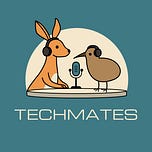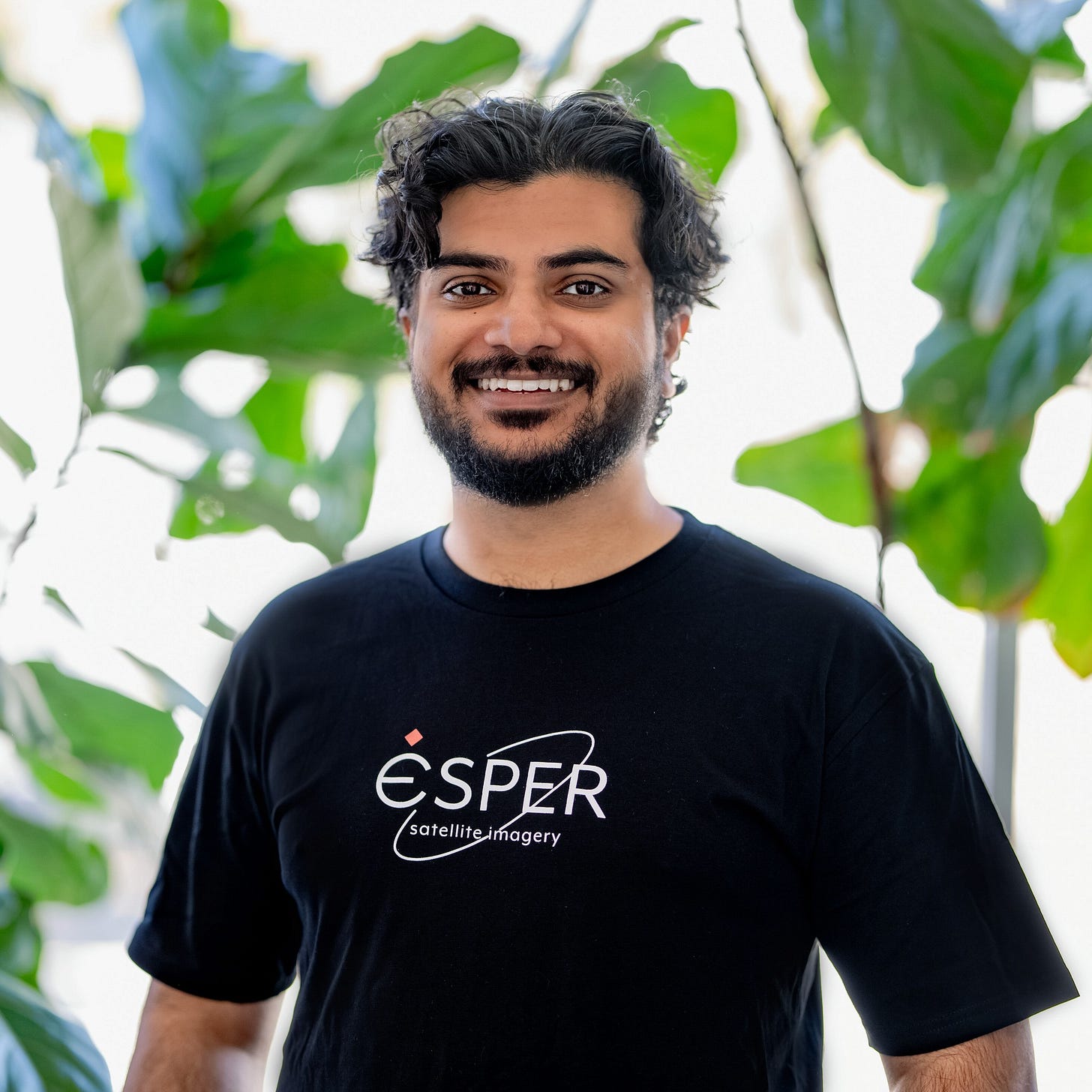Hi TechMates Community,
Mark Pavlyukovskyy and Hendrik Remigereau here, excited to share another insightful episode, powered by NZVC, the venture firm backing the next generation of iconic companies from New Zealand and beyond.
Today, we're thrilled to introduce you to Shoaib Iqbal, the dynamic founder of Esper Satellites. Shoaib's entrepreneurial journey started early, growing up in Saudi Arabia and discovering his passion for technology by tinkering with gadgets and even building complex systems while still in high school. Inspired by a hackathon, he launched into the world of startups and now leads a groundbreaking space-tech company right here in Australia.
Explore the episode
In this episode, you’ll discover:
🌱 Why deep focus and user-driven insights are crucial for startup success – Shoaib’s essential startup lesson.
💡 How clear and precise communication with customers drives innovation – key pitching takeaway.
🔥 From hackathons to satellites: transforming a curiosity into a groundbreaking startup – today's compelling headline topic.
🌍 How growing up across Saudi Arabia, India, and Australia shaped Shoaib’s entrepreneurial outlook – fascinating journey insight.
🚀 Shoaib’s impressive leap from university hackathons to launching advanced CubeSat technology into orbit – his remarkable career milestone.
Don’t miss out on these exclusive insights!
Listen or read the highlights below
⏰ Timestamps
00:00 - Introduction & Shoaib’s Background
01:40 - Growing Up in Saudi Arabia
03:39 - Early Entrepreneurial Experiences
05:25 - Shoaib’s First Hackathon Win
08:03 - Moving to Australia and Exploring Tech
10:19 - Building Innovative Solutions from DIY Tech
13:01 - Choosing Australia and Adjusting to a New Life
16:55 - Developing the Idea Behind Esper Satellites
20:12 - Understanding CubeSats
23:03 - Transitioning from Gaming to Satellite Tech
28:25 - The Genesis of Hyperspectral Imaging
31:17 - Initial Customer Discovery and Early Traction
36:49 - Challenges and Lessons in Building Tech for Space
40:06 - Future Applications of Hyperspectral Imaging
42:57 - Finding Initial Customers and Early Investors
48:46 - Australia’s Advantage for Space Tech Startups
50:31 - Esper’s Vision for Global Satellite Coverage
52:19 - Regulations and Challenges in Space Tech
54:02 - The Process of Launching a Satellite
55:28 - Use Cases in Mining, Agriculture, and Defense
58:49 - Shoaib’s Advice for Young Entrepreneurs
How Hackathons and Curiosity Launched an Edgy Space-Tech Startup
Early Curiosity and Innovation
From building homemade gadgets in Saudi Arabia to winning his first hackathon at just 16, Shoaib has always been driven by curiosity.
"I was always taking apart toys to see how they worked,"
Shoaib shares, illustrating his early passion for engineering. His enthusiasm for innovation set the stage for a career defined by creativity and ambition.
Pivoting Towards Space-Tech
Initially, Shoaib experimented with various DIY tech projects. However, the devastating Australian bushfires of 2019 provided a clear and urgent direction:
"We realized we could leverage satellite technology to detect fires earlier,"
Shoaib explains. This insight became the genesis for Esper Satellites, harnessing hyperspectral imaging to solve real-world environmental challenges.
Breaking Barriers in Satellite Technology
Esper Satellites found a unique competitive edge by pioneering affordable hyperspectral imaging. Shoaib points out,
"We focused on using commercially available components and adapting them for space, significantly lowering costs."
Their innovative CubeSats now capture detailed images, providing vital data for mining, agriculture, and climate monitoring at a fraction of traditional satellite costs.
Vision for the Future
Looking ahead, Shoaib envisions a constellation of 18 satellites providing daily global coverage by 2027.
"We aim to measure the physical world in ways never done before,"
Shoaib emphasizes. By continuing to innovate and integrate new technologies like AI-driven analytics, Esper Satellites aims to revolutionize environmental monitoring and resource management on a global scale.
Shoaib’s story proves that with relentless curiosity, user-driven innovation, and the courage to pivot, even the most ambitious dreams can become reality.
For more in-depth insights from Shoaib Iqbal, be sure to listen to the full TechMates podcast episode!
Thanks for your support—we’re excited to have you with us!
Thanks for your support—we’re excited to have you with us!
We’d love for you to follow and tag us on social media:
Youtube · Spotify · Apple Podcast
Instagram · LinkedIn · Twitter · TikTok
Happy listening,
The TechMates Team




















Share this post